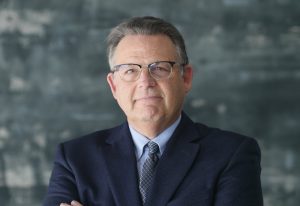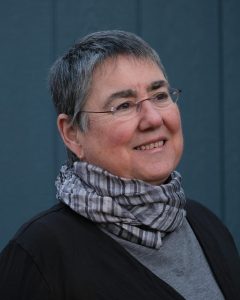Johns Hopkins UniversityEst. 1876
America’s First Research University
As a fourth-year medical student at the University of Southern California, Mario Molina, MD, spent a month on the cardiology service at Johns Hopkins. In the evenings, he would explore the stacks and lay claim to a carrel desk at the Welch Medical Library on Hopkins’ East Baltimore campus, digging into the history of medicine. Two of his most influential reads were The Life of Sir William Osler by Harvey Cushing, who trained at Hopkins shortly after the hospital opened, and A. McGhehee Harvey’s Science at the Bedside. A medical historian himself, Harvey had recently retired as chairman of the Department of Medicine.

When Molina returned to Baltimore for an internship and residency in internal medicine at Hopkins, his interest in the subject grew, and he built relationships with faculty at the Institute of the History of Medicine.
“It’s important for doctors to understand history of medicine,” explains Molina, who now serves as a Johns Hopkins Medicine trustee. “There’s a certain way we practice medicine. Now we have all this science, but how did we get here?”
To help ensure current and future health care professionals can answer that question, Molina established the J. Mario Molina Endowed Professorship in the History of Medicine in 2020. The professorship supports a leading scholar and educator in the field whose work connects historical analysis to clinical practice and health policy.
The professorship comes at a time when financial support for the humanities and social sciences is increasingly harder to secure.
“A lot of money is being put into medical sciences. But the softer side, the art of medicine, has been ignored,” he says. “The opportunity to endow the position and strengthen the institute came up, and I thought this is a great thing to do. It means a lot to me, and I want to make sure that it continues.”
Mary Fissell is the professorship’s inaugural recipient. She is a professor in the Department of the History of Medicine at the Johns Hopkins School of Medicine, with appointments in the History of Science and Technology and History departments in the Krieger School of Arts and Sciences.

While Molina is most interested in the history of medicine from 1850 to 1950 — Hopkins played a key role in the evolution of medical education with the hospital’s founding in 1889, he explains — the core of Fissell’s work is pre-modern medicine, which spans the 16th to 18th centuries. It’s a time period that, for her, feels both familiar and strange.
“At the most basic level, we’re all born. We all get sick, and we all die. We all live in bodies,” Fissell says. “Health and healing are intimately woven into our everyday lives. It has an immediate relevance to your lived experience. I think that’s very significant for people.”
Fissell likes to engage deeply with her sources in the primary texts with which she works. She also enjoys teaching, and her pupils range from undergraduates to medical students to working health care professionals. She jokes that humility is often the hidden curriculum of her courses. Healers have been at the bedside for centuries, she says, and even today’s medicine doesn’t know it all.
“The history of medicine is a space where you are forced to consider the nature of the healer and sufferer relationship in its fullest dimensions,” Fissell says. “It alters how you think about things.”
She adds she was “totally surprised, honored, and delighted” to be the Molina professorship’s inaugural recipient. It’s coincided with a shift to a more public-facing period in her career — Fissell has recently taken on a new leadership role as the president of the American Association for the History of Medicine. She’s also writing for a wider audience. Her upcoming book, set to release early next year, explores the history of abortion from antiquity to antibiotics.
“Having a named professorship, it’s a real mark of honor,” she says. “It gives me a platform to work from in a way that is lovely.”
Molina describes Fissell as a superstar in her field. He says he was very pleased to see her named the professorship’s inaugural recipient. He’s also glad to support a field that not only has captivated his interest but also provides critical insights into health and care.
“Because of the pressures on the curriculum and just the lack of time, the history of medicine has gotten pushed to the back burner,” Molina says. “It’s important to support places like the Institute of the History of Medicine at Johns Hopkins to make sure that that’s not lost, because there’s always going to be a need for it. Understanding where we came from makes us better doctors.”
Topics: Alumni, Friends of Johns Hopkins Medicine, Johns Hopkins Medicine, School of Medicine, Fuel Discovery, Promote and Protect Health